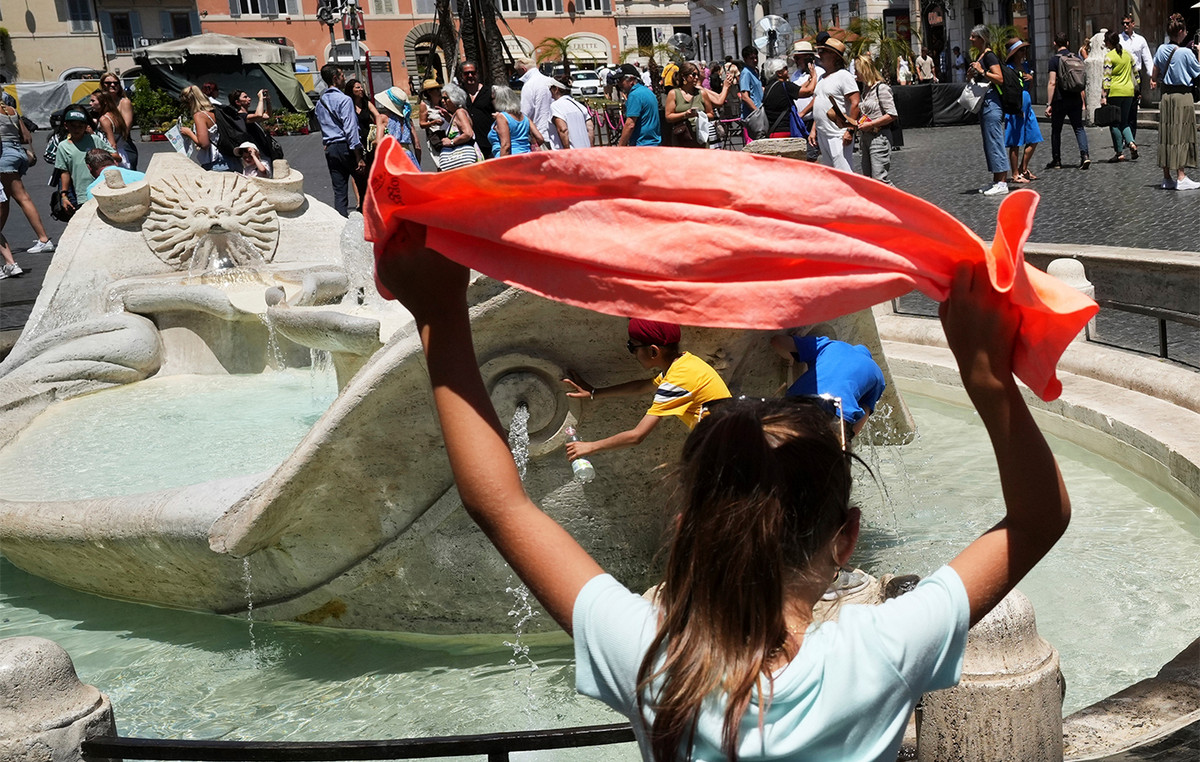The United Nations (UN) climate negotiations in Sharm el-Sheik, Egypt, are halfway through. Negotiators are working to push for a substantial deal to tackle climate change before ministers arrive this week.
Scientists say the amount of greenhouse gases released from the atmosphere needs to be halved by 2030 to meet the Paris climate accord targets. The 2015 pact set an ideal goal of limiting global temperature rise to 1.5°C by the end of the century, but left it up to countries to decide how they want to go about achieving that goal.
Below are some of the main issues being discussed at COP-27:
USA and China?
The top US negotiator suggested a meeting planned for Monday between US Presidents Joe Biden and China’s Xi Jinping. The Group of 20 meeting in Bali could also send important signals for the climate negotiations as they move towards the final stretch.
With the impacts of climate change already being felt around the world, pressures on richer, more polluting countries to spend more money to help developing countries generate clean energy and adapt to the consequences of global warming have increased.
Increasingly, Protestants are calling for compensation for rich countries to pay for losses related to global warming. China is by far the most polluting country in the world right now, but the US has gained as a historic pollution emitter over time.
Although all countries are considered equal at the UN meeting, in practice, little is done without the approval of the world’s two largest emitters, China and the United States. Beijing canceled formal climate dialogue after Nancy Pelosi, Speaker of the US House of Representatives, visited Taiwan.
Relations have cooled since then. US climate envoy John Kerry said Saturday that he had only held informal meetings with his Chinese counterpart, Xie Zhenhua. “I think we are both waiting to see how things go with the G-20 and hopefully we can return,” he told reporters.
oil exporters
A group of emerging oil and gas exporting countries have backed off against keeping global warming below 1.5 degrees Celsius. Egypt, which is chairing the talks, called a three-hour meeting on Saturday, where the issue was raised several times.
“1.5°C is a substantive issue,” said Wael Aboulmagd, senior Egyptian negotiator, adding that “it was not just China” that raised questions about the language used to refer to the target. Still, he is hopeful of finding a way to ensure the “maximum progress possible” in reducing emissions by the end of the meeting.
How to measure promises to cut emissions?
Negotiators are trying to put together a mitigation program that captures the different measures that countries have committed to reducing emissions, including for specific sectors such as energy and transport.
Many of these pledges are not formally part of the UN process, meaning they cannot be easily scrutinized at the annual meeting. A draft agreement circulated Saturday morning, which had over 200 square brackets, meaning large sections are still unresolved.
Some countries want the plan to be valid for just one year, while others say a longer-term roadmap is needed.
Avoid fossil fuels
Last year’s meeting nearly failed over demand for a final deal to phase out coal. In the end, the countries agreed to several loopholes, and there are concerns among climate activists that negotiators from fossil fuel-dependent nations will try to bring back previous commitments.
money matters
Rich countries have failed to deliver on their pledge to mobilize $100 billion a year by 2020 in climate finance for poor nations. This opened a gap of distrust in new promises. As the needs of the poorest nations grow, a new, even higher target needs to be set starting in 2025.
Aminath Shauna, the Maldives’ environment minister, said her island will need $8 billion for coastal adaptation. And even that amount may not be enough if the sea level rises too much. “It is very disheartening to see that it may be too late for the Maldives, but we still need to sort it out (the finance issue),” she said.
climate offsets
The topic of climate compensation was once considered taboo, due to the concerns of rich countries to shell out large sums. But intense pressure from developing countries forced the issue of “loss and damage” for the first time this year on the formal agenda of talks.
Whether there will be an agreement to promote more technical work or the creation of a real fund remains to be seen. Kerry said the US hoped to get a deal “before 2024” but suggested that might not happen in Egypt.
He made it clear where the red line from the US to Washington is: “The US and many other countries are not going to establish a legal framework that is tied to compensation or liability.”
That doesn’t mean the money won’t flow eventually. But it can be labeled aid, linked to existing funds, and require contributions from all major issuers to pass.
more donors
One way to raise additional money and solve the thorny issue of paying the polluter would be for countries that have experienced an economic boom in the last three decades to collaborate. The focus is primarily on China, the biggest emitter, but other countries may be asked to open their vaults as well.
hope until the end
Jennifer Morgan, the former head of Greenpeace who recently became Germany’s climate envoy, called this year’s talks “challenging.” “I can promise you that we will work until the last second to ensure that we can achieve an ambitious and equitable outcome,” she said. “We are reaching for the stars but keeping our feet on the ground.”
Source: CNN Brasil
I’m James Harper, a highly experienced and accomplished news writer for World Stock Market. I have been writing in the Politics section of the website for over five years, providing readers with up-to-date and insightful information about current events in politics. My work is widely read and respected by many industry professionals as well as laymen.





![News and prognosis of the price of the pound sterling: GBP/usd bounces but it is still vulnerable [Video] News and prognosis of the price of the pound sterling: GBP/usd bounces but it is still vulnerable [Video]](https://editorial.fxsstatic.com/images/i/gbp-usd-001_Large.jpg)

